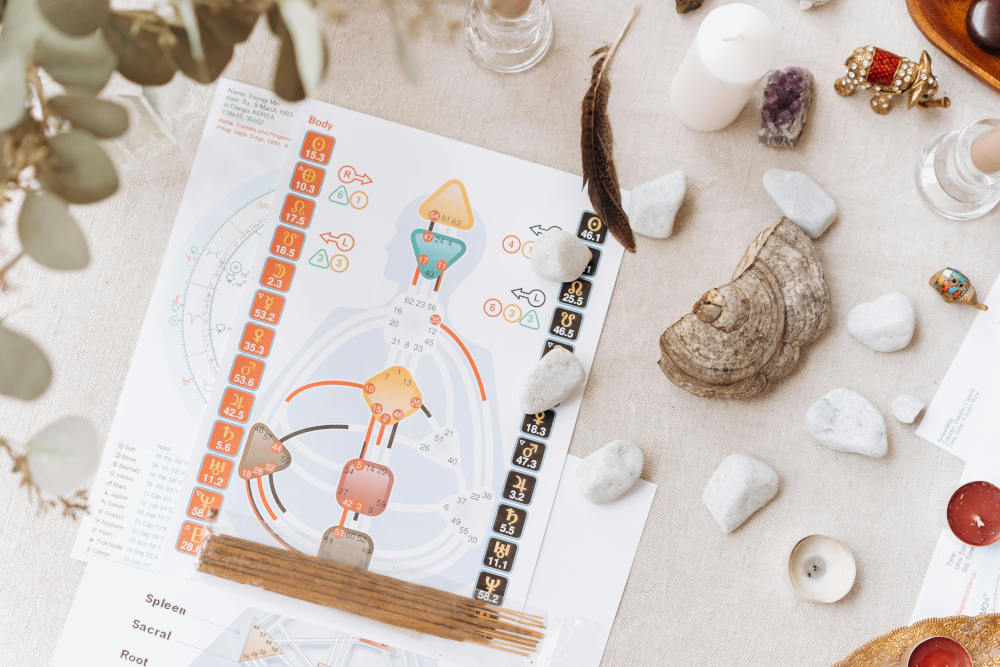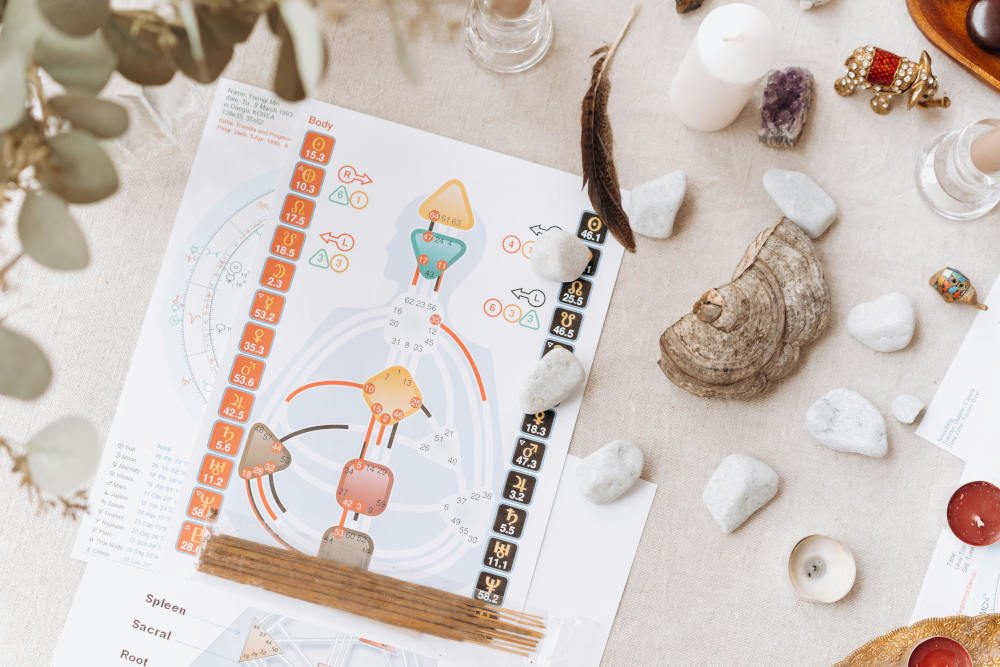
For centuries, Traditional Chinese Medicine (TCM) has played a vital role in supporting reproductive health. Today, many couples struggling with infertility are turning to Chinese herbs as a natural alternative or complement to Western fertility treatments. But do they work? Can Chinese herbs really help people conceive?
While scientific research continues to explore this question, thousands of individuals and couples around the world report success stories tied to Chinese herbal remedies. This article dives into the principles behind Chinese herbs for fertility, highlights real-world success stories, and evaluates the growing body of scientific evidence supporting their use.
Panaprium is independent and reader supported. If you buy something through our link, we may earn a commission. If you can, please support us on a monthly basis. It takes less than a minute to set up, and you will be making a big impact every single month. Thank you!
Understanding Infertility and TCM
Infertility is typically defined as the inability to conceive after one year of regular unprotected intercourse. In the U.S. alone, about 1 in 5 women of childbearing age experiences difficulty getting pregnant.
While Western medicine focuses on issues like hormone levels, ovulation, sperm quality, and structural abnormalities, TCM takes a more holistic approach. It sees infertility as a symptom of deeper imbalances in the body’s qi (vital energy), yin-yang, blood flow, and organ systems.
Chinese herbalists often target the kidney system (linked to reproductive health), liver system (emotional balance and circulation), and spleen system (nutrition and energy). Treatments are customized to each person, which makes TCM particularly attractive to those who feel overlooked by conventional medicine.
Common Chinese Herbs Used for Fertility
Chinese herbal formulas typically combine several ingredients to address multiple aspects of reproductive health. Some of the most frequently used herbs include:
-
Dang Gui (Angelica sinensis) – Nourishes blood and regulates menstruation.
-
Bai Shao (White Peony Root) – Calms the liver, supports hormonal balance.
-
Shu Di Huang (Rehmannia root) – Tonifies yin and supports the kidneys.
-
Tu Si Zi (Dodder seed) – Strengthens kidney yang and improves sperm.
-
Yi Mu Cao (Motherwort) – Promotes healthy uterine blood flow.
-
Chuan Xiong – Enhances circulation and relieves menstrual pain.
These herbs are not typically used alone; practitioners combine them based on a detailed diagnosis involving pulse and tongue analysis, menstrual history, emotional state, and lifestyle.
Success Stories: Real People, Real Results
1. Emma's Journey: Overcoming PCOS Naturally
Emma, a 34-year-old marketing executive from Los Angeles, struggled with polycystic ovary syndrome (PCOS). Her periods were irregular, and ovulation rarely occurred. After trying Clomid with no results, she sought out a licensed TCM practitioner.
She was prescribed a customized herbal formula including Dang Gui, Bai Shao, and Cang Fu. Within 3 months, her cycle regularized, and after 6 months, she conceived naturally.
“Western doctors gave up after three cycles. TCM focused on my whole body, not just my ovaries. I felt healthier, calmer, and eventually, I got pregnant naturally,” Emma shared.
2. John and Lisa: Male Factor Fertility Success
Lisa and John had been trying to conceive for 2 years. Testing revealed low sperm motility and morphology. While Lisa’s reproductive health was normal, John’s sperm count was below average.
Their acupuncturist recommended herbs like Gou Qi Zi (goji berry) and Tu Si Zi, along with dietary changes. After 4 months of herbal therapy, a repeat semen analysis showed marked improvement—and within two months, Lisa was pregnant.
“We were shocked. Herbs and diet improved John’s numbers. I believe TCM gave us our son,” said Lisa.
3. Michelle: IVF and Herbal Medicine Combined
At 39, Michelle was told her chances of IVF success were slim due to her diminished ovarian reserve. She was referred to a fertility acupuncturist who gave her herbs to nourish kidney yin, regulate hormones, and improve blood flow to the uterus.
She continued herbal therapy and acupuncture through her IVF cycle. Her egg quality improved, leading to three viable embryos—one of which successfully implanted.
“My RE (reproductive endocrinologist) was surprised at the change in my response. I truly think the herbs made my IVF more successful,” she said.
What Does the Science Say?
Though individual stories are powerful, the scientific community has been working to validate these outcomes through research and clinical trials.
1. Systematic Reviews Support Efficacy
A 2015 meta-analysis published in Complementary Therapies in Medicine analyzed 40 randomized controlled trials involving 4,247 women. It concluded that Chinese herbal medicine improved pregnancy rates in women with infertility compared to Western medicine alone.
The review also noted that TCM treatments improved menstrual regularity, ovulation rates, and endometrial thickness.
2. Chinese Herbs and IVF Success
A study published in Fertility and Sterility (2011) found that combining Chinese herbs and acupuncture with IVF increased clinical pregnancy rates by up to 65%, compared to 39% with IVF alone.
The herbs were shown to enhance blood flow to the uterus, regulate hormone levels, and reduce stress—factors that significantly affect IVF outcomes.
3. Male Fertility Studies
In a 2019 study in Andrologia, men with low sperm quality were given Chinese herbal formulas containing Yin Yang Huo (Horny Goat Weed) and Gou Qi Zi. After 12 weeks, they showed improvements in sperm motility, morphology, and total count.
These studies support what many couples already believe: Chinese herbs may play a meaningful role in both male and female fertility.
Why Chinese Herbs May Be Effective
1. Regulating Hormones Naturally
Many herbs used in TCM influence endocrine function, helping regulate hormones like FSH, LH, and progesterone—critical for ovulation and implantation.
For example, Dang Gui and Bai Shao help modulate estrogen levels, reduce PMS symptoms, and improve ovulatory cycles.
2. Improving Uterine Lining and Blood Flow
Herbs like Chuan Xiong and Yi Mu Cao improve microcirculation, which supports thicker, healthier endometrial lining—essential for embryo implantation.
3. Reducing Stress and Inflammation
Stress impacts fertility by disrupting the hypothalamic-pituitary-gonadal (HPG) axis. Chinese herbs, often used in conjunction with acupuncture, help reduce cortisol levels and inflammation—restoring reproductive balance.
4. Enhancing Egg and Sperm Quality
Rather than forcing ovulation or increasing sperm artificially, Chinese herbs aim to nourish reproductive organs, enhance mitochondrial health, and improve natural functioning over time.
Limitations and Cautions
1. Not a Quick Fix
Chinese herbs require time and consistency. Most practitioners recommend a 3–6 month protocol before significant results can be expected. Some individuals may not respond at all, especially if structural issues (like blocked tubes or fibroids) are present.
2. Lack of Standardization
One of the biggest challenges in herbal medicine is quality control. Herbs may vary by source, preparation, and purity. Some unregulated products may contain contaminants or heavy metals.
To avoid this:
-
Work with licensed practitioners.
-
Choose pharmaceutical-grade herbs from reputable suppliers.
-
Avoid over-the-counter herbal mixes not prescribed to you.
3. Possible Side Effects or Interactions
Though considered “natural,” Chinese herbs can cause:
-
Allergic reactions
-
Digestive upset
-
Hormonal imbalances (if misused)
-
Dangerous interactions with fertility drugs or IVF medications
Always consult your doctor or fertility specialist before starting herbal therapy, especially if undergoing assisted reproductive technology (ART).
Integrating TCM and Western Fertility Care
Many fertility clinics now support integrative medicine, encouraging patients to combine IVF or IUI with Chinese herbs and acupuncture. Some studies suggest this dual approach may improve egg quality, reduce miscarriage risk, and shorten the time to pregnancy.
Here’s how integration might look:
| Western Fertility Treatment | Complementary TCM Approach |
|---|---|
| IVF stimulation phase | Herbs to support ovaries and reduce side effects |
| Egg retrieval | Herbs for recovery and blood nourishment |
| Embryo transfer | Herbs to calm the uterus and reduce cramping |
| Natural conception attempts | Herbs to regulate cycles and strengthen ovulation |
Final Thoughts: Hope, Healing, and Balance
Chinese herbal medicine offers hopeful, evidence-backed support for those struggling with fertility. While it may not be a universal solution, countless success stories and clinical studies suggest it can significantly enhance reproductive health, especially when paired with expert guidance and conventional care.
If you’re exploring Chinese herbs for fertility, consult a licensed TCM practitioner experienced in reproductive health. With time, personalized care, and a balanced approach, these ancient remedies may help you write your own fertility success story.
References
-
Ried, K. (2015). Chinese herbal medicine for female infertility: an updated meta-analysis. Complementary Therapies in Medicine, 23(1), 116-128.
-
Stener-Victorin, E., & Humaidan, P. (2011). Public funding of assisted reproductive technology in Denmark: a comprehensive overview. Fertility and Sterility, 95(5), 1251–1253.
-
Zhang, M., et al. (2019). Effects of Chinese herbal medicine on semen quality: A systematic review. Andrologia, 51(3), e13228.
-
American Pregnancy Association – Chinese Medicine and Fertility
-
National Center for Complementary and Integrative Health (NCCIH)
Was this article helpful to you? Please tell us what you liked or didn't like in the comments below.
About the Author: Alex Assoune
What We're Up Against
Multinational corporations overproducing cheap products in the poorest countries.
Huge factories with sweatshop-like conditions underpaying workers.
Media conglomerates promoting unethical, unsustainable products.
Bad actors encouraging overconsumption through oblivious behavior.
- - - -
Thankfully, we've got our supporters, including you.
Panaprium is funded by readers like you who want to join us in our mission to make the world entirely sustainable.
If you can, please support us on a monthly basis. It takes less than a minute to set up, and you will be making a big impact every single month. Thank you.


































0 comments